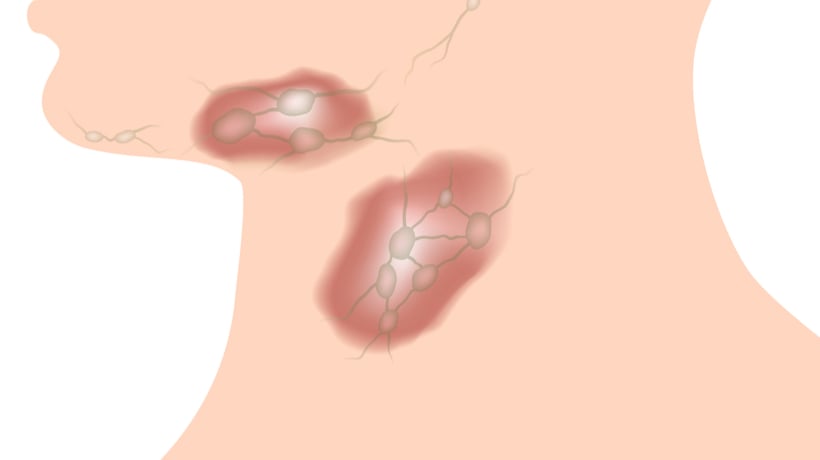Have you ever noticed soreness or tenderness on the sides of your neck or under your chin when you were feeling under the weather? If so, you have likely experienced swollen lymph nodes — or what doctors call lymphadenopathy — a common condition that results from the body’s immune system working to rid itself of disease.
When people think of swollen glands, they often think of the lymph nodes in the neck. But according to the Cleveland Clinic, the body contains a network of about 600 lymph nodes, and those in other places, like the groin, under your chin, and in your armpits, can swell too.
Causes of Swollen Lymph Nodes
The most common causes of localized swollen lymph nodes are the common cold or flu, sinus infections, strep throat, skin wounds, and mononucleosis.
If your lymph nodes are swollen in more than one area of the body, the cause might be a more serious, systemic infection like lupus or rheumatoid arthritis, a sexually transmitted disease like HIV, a bacterial infection like Lyme disease, or a viral infection like measles or Epstein-Barr.
In rare cases, swollen lymph nodes can be a warning sign of cancer, specifically lymphoma, or cancer of the lymphatic system. Other less-common causes include injury, AIDS, leukemia, and cancer that’s spread to the lymph nodes from another part of the body.
So how can you tell if your lymph nodes are swollen as the result of a simple infection, like a common cold, or something more serious like cancer?
When Should I Worry About Swollen Lymph Nodes?
The Cleveland Clinic states that the following symptoms might point to a more sinister cause of swollen lymph nodes:
- Lymph nodes that are 1+ inch in diameter
- Nodes that are very painful, hard, fixed to the skin or growing rapidly
- Nodes that are draining pus or other substances
- Symptoms like weight loss, night sweats, long-lasting fever, fatigue, difficulty breathing
- Swollen nodes close to your collarbone or lower part of your neck (this often points to cancer)
- Red or inflamed skin over your swollen lymph nodes
As a general rule, always schedule an appointment with your doctor if you have symptoms that concern you.
For more information on swollen lymph nodes, their causes, and treatment, visit www.ClevelandClinic.org.



